Rugby World Cup
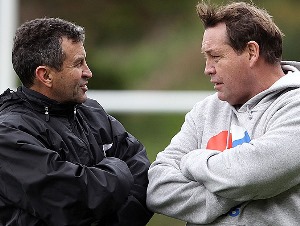
Wayne Smith appointed as All Blacks defence specialist
Wayne Smith will rejoin the All Blacks coaching staff ahead of next year’s World Cup as a defence specialist.
Smith, who was an assistant to Graham Henry between 2004 and 2011 and a key member of the coaching combination which won the 2011 World Cup in New Zealand, has been assistant coach of the Chiefs team which has won two Super Rugby titles.
All Black head coach Steve Hansen said Smith is “one of the most astute coaches in the world” and having worked with him in the past he knows just how valuable he is to any team he is involved in.
“Smithy will add another dimension to what is already a strong coaching group in what will be a big year for us,” Hansen said.
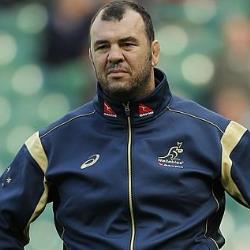
Michael Cheika – Wallabies coach
The penny has finally dropped. The Wallabies know they need to resolve their scrum shortcomings or they will fall short at the World Cup next year.
According to media reports in both Australia and New Zealand Wallaby coach Michael Cheika appears to be close to securing a ‘scrum guru’ to solve his team’s set-piece woes before next year’s World Cup.
After watching the Australian pack get pushed around by Wales and England on the end-of-year tour, Cheika flagged an overhaul of the Wallabies’ scrum.
Sources close to Cheika said he is poised to add a big-name “been there, done that” scrum technician to his coaching unit.
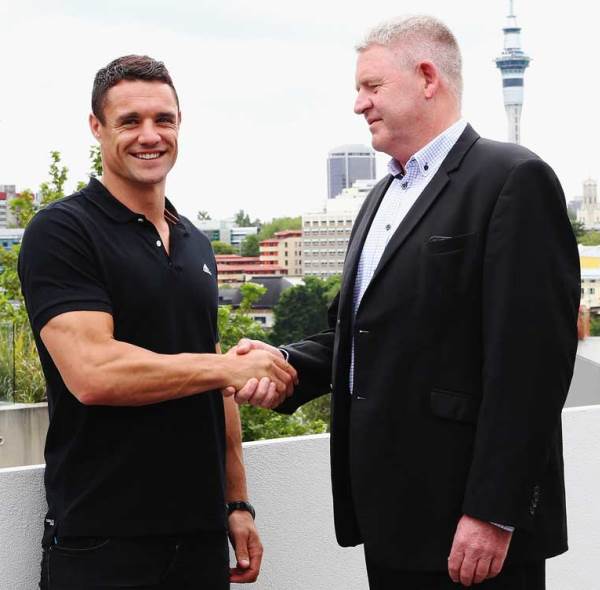
Dan Carter & Steve Tew
New Zealand and their All Blacks will lose a large number of experienced campaigners and key players after the 2015 Rugby World Cup, next year.
This was highlited due to the announcement this week by Dan Carter that he’ll be joining French Top 14 club Racing Metro after the Rugby World Cup next year, in England and Wales.
Carter, 32, signed a three-year deal with the Paris-based club which will basically mean the end of his All Black career.
However, Carter may not be the only one to leave New Zealand shores.
It appears that captain Richie McCaw, midfielders Ma’a Nonu and Conrad Smith, veteran front-rowers Tony Woodcock and Keven Mealamu, loose forwards Jerome Kaino and Liam Messam and even Ben Franks, Cory Jane and Charlie Faumuina could also be considering high-paying, late-career stints overseas.
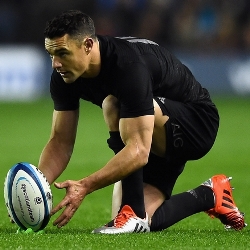
Dan Carter
Daniel Carter, world rugby’s leading points scorer and one of the greatest players to ever don the All Blacks jersey, is to leave New Zealand rugby at the end of the 2015 season.
The All Blacks and Crusaders flyhalf has announced he has signed a three-year deal with French Top 14 club Racing Metro. It will be Carter’s second stint in France after he played five games for Perpignan in 2008-09 during his sabbatical from New Zealand rugby.
32-year-old Carter said it was exciting to confirm his future post 2015.
“It’s going to be an awesome adventure for me and my family. Having visited France many times, including my time with Perpignan, I know what the French culture and their rugby culture is like and it’s something I really love.
“Having said that, it’s the immediate future that is exciting me at the moment. 2015 is going to be a big year and I’m looking forward to getting into it, firstly with the Crusaders and then hopefully with the All Blacks.
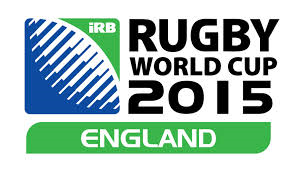 The Wales squad will face temperatures ranging from 42 degrees to minus 150 degrees, will sleep in normobaric hypoxic chambers and will train in surroundings ranging from the deserts of Qatar to the peaks of the Swiss Alps as part of their gruelling preparation for next year’s Rugby World Cup.
The Wales squad will face temperatures ranging from 42 degrees to minus 150 degrees, will sleep in normobaric hypoxic chambers and will train in surroundings ranging from the deserts of Qatar to the peaks of the Swiss Alps as part of their gruelling preparation for next year’s Rugby World Cup.
Wales’ full schedule for 2015 will see Warren Gatland’s squad undergo intensive training camps in Switzerland, Qatar and Poland as well as face home and away ties against Ireland before concluding their preparations against Italy at the Millennium Stadium.
The rigorous schedule has left no stone unturned in order to ensure Wales arrive at the world’s showpiece tournament in peak condition with leading facilities at home in Wales and across the world utilized.
The programme is the culmination of months of research and planning and WRU head of physical performance, Adam Beard, who also designed the 2011 schedule, is delighted to formally announce the squad’s plans.
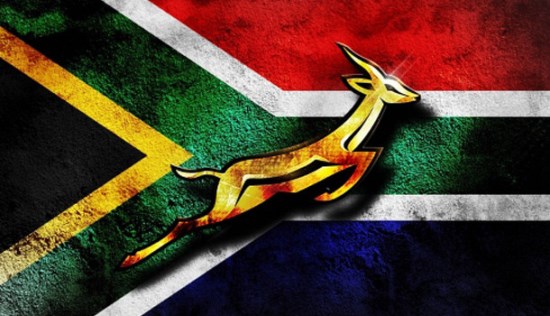 The South African Rugby Union (SARU) on Friday confirmed the home venues for the 2015 Castle Lager Rugby Championship.
The South African Rugby Union (SARU) on Friday confirmed the home venues for the 2015 Castle Lager Rugby Championship.
The Springboks will play New Zealand at Emirates Airline Park (formerly Ellis Park), Johannesburg, on Saturday 25 July and Argentina at Growthpoint Kings Park, Durban, on Saturday 8 August.
The schedule was amended as a result of the condensing of the Castle Lager Rugby Championship competition to three rounds because of the Rugby World Cup, which begins in mid-September.
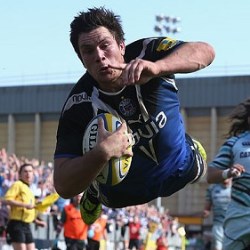
Francois Louw
Springbok coach Heyneke Meyer will be pleased to see two of his stalwarts returning to the rugby field in the European Cup this weekend.
Bath’s Francois Louw is set to make his comeback after a ten-week stint on the sideline following surgery on his neck for nerve damage.
The flank last played for the Springboks in their Rugby Championship Test against the All Blacks in Wellington on 13 September.
Bath assistant coach Toby Booth has indicated that Louw may be thrown straight into the action and could start for the English team when they face Montpellier at home on Friday.
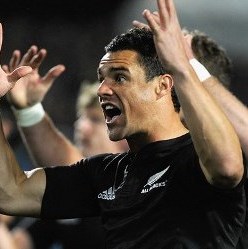
Dan Carter
Dan Carter is still aiming to be a factor in the 2015 World Cup after an injury plagued couple of months that have seen him stuttering with form.
Cater now faces a nine-month race to regain the fine form he is capable of for the World Cup after an uncharacteristically below-par year-end tour.
The All Black flyhalf has decided sitting back on his laurels is no longer an option and that regular and consistent game-time will bring him back to his best.
“Throughout the tour my injury had healed. The body felt good but the game-time was lacking,” Carter admitted.
“That tour wasn’t the best situation to get regular game-time but it got me back in the environment, back into the team and a better understanding of the game we’re trying to play.
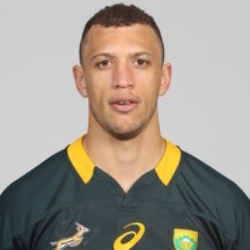
Zane Kirchner
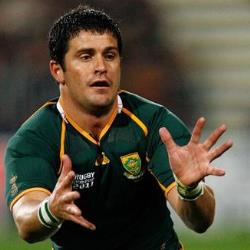
Morné Steyn
Springbok coach Heyneke Meyer is likely to surprise with a few unpopular decisions in his 2015 Rugby World Cup squad.
According to weekend newspaper reports, the inclusion of flyhalf Morné Steyn and fullback Zane Kirchner could be the biggest shocks in Meyer’s 31-man squad for next year’s showpiece event in England and Wales.
Kirchner has fallen out of favour in recent times after the emergence of Willie le Roux, while Steyn has fallen behind Pat Lambie and Handré Pollard in the flyhalf pecking order.
 Both parts of Ireland have united to bid for the World Cup in 2023, promising on Friday to rally Catholics and Protestants behind the event.
Both parts of Ireland have united to bid for the World Cup in 2023, promising on Friday to rally Catholics and Protestants behind the event.
The Irish Rugby Football Union made the announcement alongside leaders of the Republic of Ireland and Northern Ireland, a part of the United Kingdom where only the Protestant majority plays rugby.
Underscoring the all-Ireland appeal of their plans, they spoke at a mainly Protestant school in the Northern Ireland city of Armagh, the ecclesiastical capital of the island.
World Rugby plans to unveil the winner in mid-2017, with South Africa considered the early favourite.
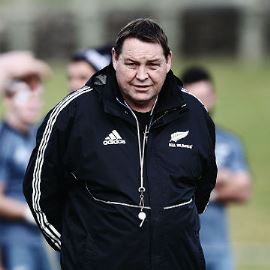
Steve Hansen
Convincing Steve Hansen to extend his contract after the 2015 World Cup would ensure the All Blacks aren’t exposed by the exit of their experienced players, says Mike Eagle.
Eagle, who was New Zealand Rugby’s chairman between 2010 and early 2014, understands supporters may be nervous about the All Blacks coach being reappointed ahead of next year’s global tournament – something that has never happened before – but believed it should be endorsed.
Last month NZ Rugby chief executive Steve Tew said discussions with Hansen, who replaced Graham Henry as head coach in 2012, were well underway and it was up to Hansen to decide if he wanted to sign a new deal.
While he hadn’t been privy to the discussions between Tew and the board, Eagle said it would foolish to wait until after the World Cup to start searching for a new coach if Hansen was prepared to stay.
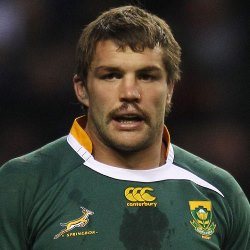
Flip van der Merwe
Springbok lock Flip van der Merwe says there is enough leadership in the team to fill the void left by Jean de Villiers.
The Springbok captain suffered a horrific knee injury in last Saturday’s Test against Wales in Cardiff. He faces an extended period on the sidelines and could even miss next year’s Rugby World Cup in England and Wales.
While losing De Villiers would be a big blow, Van der Merwe feels there are enough leaders in the squad for coach Heyneke Meyer to call on.
“It’s one of Heyneke’s big success stories during his time as coach. He concentrated on establishing a leadership group. of which Jean merely acts as manager,” Van der Merwe says.
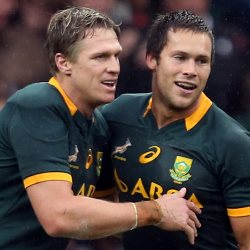
Jean de Villiers & Jan Serfontein
The Springboks are likely to head to the World Cup next year without a specialist outside centre, but is that such a problem?
Jaque Fourie’s recent retirement from international rugby and captain Jean de Villiers’ horrific knee injury means that Springbok coach Heyneke Meyer’s midfield options will have to be significantly revised next year.
The two formed the most capped centre pairing in Springbok history, and many had their money on seeing them together for one last hurrah in England next year.
A look at the options available shows that outside centres are in seemingly short supply, which means that the Boks may play with two inside centres as they effectively did throughout 2014.
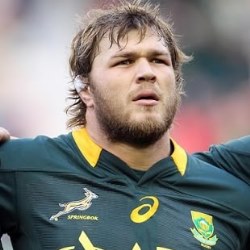
Duane Vermeulen
As one of three players to have played in all 12 of South Africa’s Test matches in 2014 it is safe to say No.8 Duane Vermeulen is now an integral part of Heyneke Meyer’s plans for the World Cup.
A stellar year that included a man-of-the-match performance in October’s win over the All Blacks, and culminated in his nomination for World Rugby Player of the Year.
The next goal for Vermeulen will be impressing on the World stage in his first ever World Cup tournament after only making his debut in the Rugby Championship in 2012 at the age of 26.
“It wasn’t always a dream to play for the Springboks – that developed later on, and now I want to play in a World Cup. Hopefully I can stay in the team,” he said,” Vermeulen said.
 The International season is done for the Southern Hemisphere and for Springbok rugby for 2014 and the only rugby of real importance left for us southern rugby junkies, are the 2 remaining HSBC Sevens World Series Tournaments in 2014 – the Dubai Sevens this coming weekend and the Nelson Mandela Bay Sevens Tournament the week thereafter.
The International season is done for the Southern Hemisphere and for Springbok rugby for 2014 and the only rugby of real importance left for us southern rugby junkies, are the 2 remaining HSBC Sevens World Series Tournaments in 2014 – the Dubai Sevens this coming weekend and the Nelson Mandela Bay Sevens Tournament the week thereafter.
In the meantime the Southern Hemisphere Super Rugby sides are extremely busy with their preparation work, conditioning and getting ready for Super Rugby 2015.
The question is, what has the Springboks learnt from the year of 2014 and from the End Of Year Tour?
Will we see a total change of tack and a move away from the high-ball kick and chase bombs from the Springboks? Very few International Tests remain before the start of the Rugby World Cup 2015 (18 September 2015) in England, however a full season of Super Rugby and the abbreviated Rugby Championship still loom in 2015 before the World Cup starts.
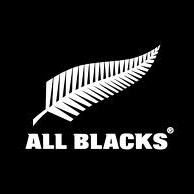 Reigning champions New Zealand remained the team to beat less than a year out from the World Cup in England after yet another successful November campaign in Europe.
Reigning champions New Zealand remained the team to beat less than a year out from the World Cup in England after yet another successful November campaign in Europe.
There’s nothing new in the All Blacks being the yardstick for the global game and their rivals will take some comfort in knowing New Zealand have yet to win the World Cup on foreign soil.
So the fact they were pushed close by both England (24-21) and Wales (34-16) this month before emerging victorious won’t have done the All Blacks any harm, nor will the success of a virtual second-choice side in preserving their unbeaten record against Scotland.
However, all these matches demonstrated how no team goes for the full 80 minutes quite like New Zealand, who have enviable depth.
England found themselves needing two scores in the closing stages against the All Blacks and managed one while Wales conceded 24 points in the final 17 minutes.
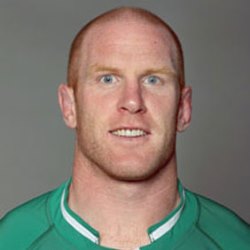
Paul O’Connell
Ireland captain Paul O’Connell insists that past, bitter experiences mean that their first double over South Africa and Australia since 2006 does not necessarily guarantee a successful World Cup.
The 35-year-old lock, named man of the match after the thrilling 26-23 victory over the Wallabies, was part of the 2007 team that lost the Six Nations title on points difference, and then experienced a nightmare World Cup campaign, having been considered dark horses for the title.
“We’ve been here before and it didn’t serve us well,” said O’Connell.
“All we are trying to do is improve game by game. We will go into the Six Nations and try to improve on what we have done in November.
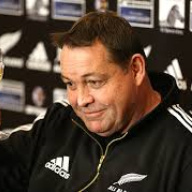
Steve Hansen
New Zealand coach Steve Hansen has clearly marked his team’s challenge, after again dominating world rugby in 2014 – winning an unprecedented back-to-back World Cup in 2015.
After crashing out in a shock defeat by France in the 2007 quarterfinals, the All Blacks stormed to World Cup glory on home soil in 2011.
Since then, they have been in awesome form, losing only one match this season, to the Springboks by two points, after having already wrapped up a third successive Rugby Championship.
And Hansen, speaking after his team produced a second half five-try fest to see off Wales 34-16 on Saturday, was in no doubt about what lay ahead for him and his charges.
“No one’s won back-to-back World Cups so we shouldn’t even be the favourites, but we will be because we’re the number one side in the world,” said Hansen.
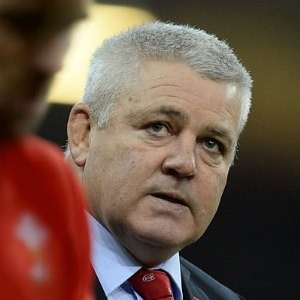
Warren Gatland
Wales coach Warren Gatland fired an early shot at the All Blacks’ World Cup defence, suggesting the New Zealanders may be hampered by their weak pool.
New Zealand and Wales face vastly different challenges to make the World Cup playoffs. The All Blacks head Pool C that includes the improving Argentina, Tonga, Georgia and Namibia.
In contrast, Wales find themselves in the “pool of death” with hosts England, Australia, Fiji and Uruguay.
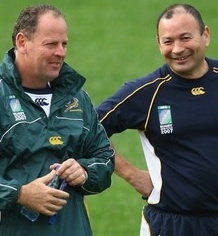
Jake White and Eddie Jones
Japan coach Eddie Jones says former Springbok coach Jake White is the ideal candidate to take over as Wallabies mentor should Ewen McKenzie be sacked.
According to the Sydney Morning Herald website, speculation is growing that McKenzie could be fired within weeks.
This comes despite the Australian Rugby Union (ARU) chief executive Bill Pulver publicly backing McKenzie as the man to take the Wallabies to next year’s World Cup in England and Wales.
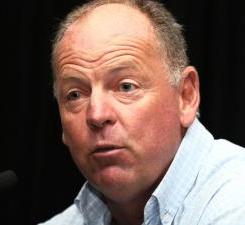
Jake White
Tonga have added former Springboks coach Jake White to their backroom staff for the year-end tour to Asia and Europe.
White will serve as a technical advisor to head coach Mana Otai when Tonga plays Georgia, the United States and Scotland next month it was reported by TVNZ.
“Through some mutual acquaintances we got in touch with Jake and he was extremely keen to come on board,” Tonga high performance manager Peter Harding told ONE News.
 Uruguay beat Russia 36-27 in Montevideo on Saturday to snatch the last qualification spot for the 2015 Rugby World Cup in England.
Uruguay beat Russia 36-27 in Montevideo on Saturday to snatch the last qualification spot for the 2015 Rugby World Cup in England.
Although they lost the first leg in Moscow 22-21, the South Americans got the result they needed to qualify for their first World Cup since 2003.
They will now line up in a daunting Pool A alongside the hosts, twice former winners Australia, Wales and Fiji.
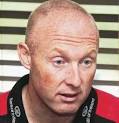
Neil Doak – New Ulster head coach
 Neil Doak has been appointed Ulster head coach, while Les Kiss will become the province’s director of rugby after next year’s World Cup.
Neil Doak has been appointed Ulster head coach, while Les Kiss will become the province’s director of rugby after next year’s World Cup.
The elevation of attack coach Doak, 42, to the head coaching role is not a surprise.
Ireland assistant coach Kiss, 49, has been Ulster’s interim director of rugby at Kingspan Stadium in recent months following Mark Anscombe’s departure.
Kiss will leave the Ulster interim role next week but will return next October.
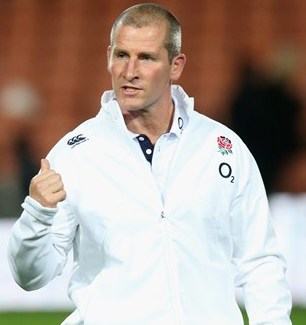
Stuart Lancaster
Stuart Lancaster will be England Head Coach until 2020 after the Rugby Football Union decided to extend his contract.
Appointed permanent head coach in March 2012, his tenure in charge of the England team is now set to include the 2019 Rugby World Cup in Japan.
Lancaster’s coaching team – Forwards Coach Graham Rowntree, Backs Coach Andy Farrell and Attacking Skills Coach Mike Catt – have also been contracted to the end of the 2019-20 season.

Jake White and Eddie Jones
Jake White could make a quick return to rugby coaching with Japan coach Eddie Jones keen to secure his services with the Brave Blossoms.
It was announced yesterday that White would be parting ways with the Sharks after a single season in Durban.
White and Jones worked together with South Africa during the successful 2007 World Cup campaign when the Australian helped the squad in a consulting role.
And the roles could be reversed this time, with Jones in charge of Japan, and eager to bring in White although he admits the South African will be in high demand.
“He is going to do some consultancy, I just don’t know where,” Jones told Kyodo News.
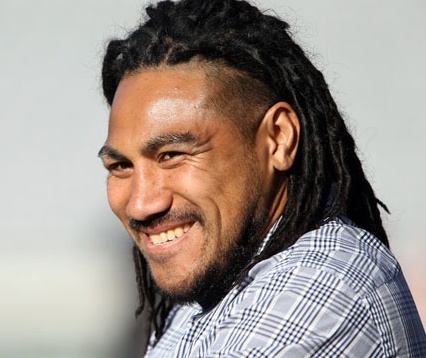
Ma’a Nonu
All Blacks star Ma’a Nonu has been linked to French club Toulon as the European champions ramp up recruitment ahead of next year’s Rugby World Cup.
Respected French newspaper Midi Olympique claims Toulon are close to finalising a two-year deal with the veteran New Zealand midfielder.
 Russia will take the narrowest of leads with them to Montevideo in two weeks’ time after they beat Uruguay 22-21 in Saturday’s first leg of the final Rugby World Cup 2015 qualifier in Krasnoyarsk. However, while no team likes to lose a game of rugby, Uruguay’s Pablo Lemoine will probably be the more satisfied of the two coaches as his side is still very much in contention at what is effectively half-time. Of course, the fact that the second half will most likely be played on a warm day in front 12,000 home fans will give him cause for optimism after his team held their own in the near-freezing conditions and vociferous Siberian crowd of the first 80 minutes.
Russia will take the narrowest of leads with them to Montevideo in two weeks’ time after they beat Uruguay 22-21 in Saturday’s first leg of the final Rugby World Cup 2015 qualifier in Krasnoyarsk. However, while no team likes to lose a game of rugby, Uruguay’s Pablo Lemoine will probably be the more satisfied of the two coaches as his side is still very much in contention at what is effectively half-time. Of course, the fact that the second half will most likely be played on a warm day in front 12,000 home fans will give him cause for optimism after his team held their own in the near-freezing conditions and vociferous Siberian crowd of the first 80 minutes.
But for Russia’s indiscipline and the cultured right boot of fly-half Felipe Berchesi, who slotted seven penalties, the gap would have been more. Two yellow cards, a high penalty count and the spurning of several try-scoring opportunities did nothing for the mood of Russia coach Raphael Saint-Andre but he will know that his team was the more creative on the day and, if they can somehow learn to compete at set pieces and improve their defence at mauls, they too can make the long journey to South America with some confidence.
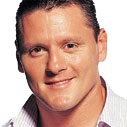
Matthew Burke
If there was a World Cup without the All Blacks, we would have a great chance of lifting the William Webb Ellis trophy. Unfortunately that isn’t going to happen.
I say this because perhaps we may have been a little harsh in our criticism of the Wallabies in relation to our neighbours across the ditch.
The Wallabies are in a predicament, along with South Africa and Argentina. The three of us contest a competition against a side who right now are clearly the best rugby-playing nation.
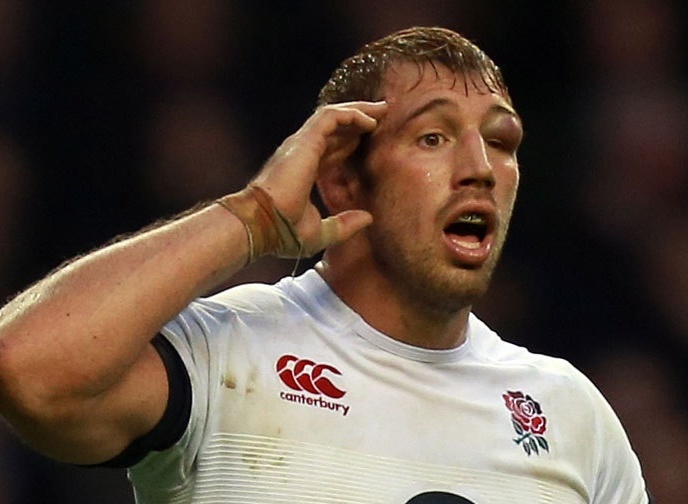
Chris Robshaw
It is 8 November.
England are about to tackle the All Blacks at Twickenham.
For captain Chris Robshaw, matchday starts with a lie-in; he has his own room due to his thunderous snoring. Then comes breakfast, a massage and some physio if required before the forwards go through a couple of plays while the backs play a passing game.
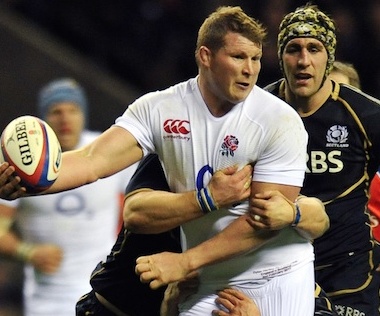
Dylan Hartley
When the World Cup kicks off in a little under a year’s time, England will have played all but one of the other nine sides in the top ten of the current IRB World Rankings. Psychologically, it is a huge 12 months for next year’s hosts.
In the past few seasons, they have made huge strides in the right direction – but they are not the finished product yet.
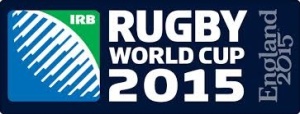 There’s a year to go until the World Cup – just enough time for it to be turned into an eligibility farce.
There’s a year to go until the World Cup – just enough time for it to be turned into an eligibility farce.
The potential for the game’s biggest event to be laughed out of town is growing. The prospect of teams turning up with legions of players who don’t really have a strong link to the jersey they wear is real.
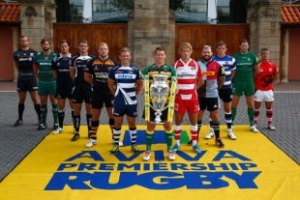
Premiership Clubs have been given dispensation by the IRB to start playing on 17 October next year, during the World Cup’s knockout stages.
The Rugby Football Union and Premiership Rugby have settled their dispute over World Cup compensation, the governing bodies have announced.
England’s 12 clubs are likely to share £13 million provided by the RFU and have been cleared to play matches during the knockout stage of the tournament.
“It’s a reflection of the strength of the partnership that once again we have managed to come to an arrangement that benefits both the RFU and clubs,” RFU chief executive Ian Ritchie said.
 All Blacks coach Steve Hansen can see where his predecessor, Sir Graham Henry, is coming from.
All Blacks coach Steve Hansen can see where his predecessor, Sir Graham Henry, is coming from.
But Hansen wants his team to continue improving without the need of a loss as a wake-up call.
Henry, with Hansen as an assistant, steered New Zealand to the World Cup title in 2011.
However, 12 months out from the start of their defence, Henry is worried they might get too used to winning and believes some adversity, namely a loss, might have benefits.
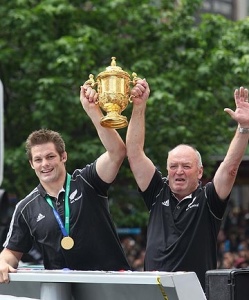
LET’S DO IT AGAIN: Sir Graham Henry reckons Richie McCaw and his All Blacks can repeat their 2011 World Cup heroics next year.
Sir Graham Henry believes Steve Hansen’s All Blacks have the ingredients to carry out a historic defence of the Rugby World Cup at next year’s tournament in England.
Henry delivered New Zealand their second World Cup at home in 2011 following their victory as hosts of the inaugural tournament in 1987.
No team has won back-to-back titles and no All Blacks side has triumphed away from home.
But, a year out from next year’s tournament, Henry is backing the current side to buck history.
“For sure, but it won’t be easy,” warned Henry who oversaw the quarterfinal disaster in 2007 before redeeming himself.